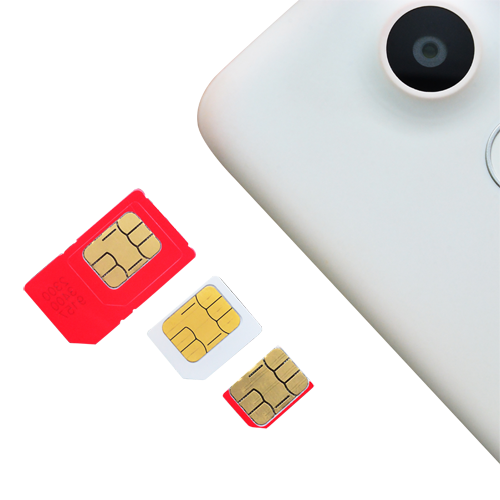Navigating the world of cellphones isn’t always easy. SIM cards, prepaid phones, locked and unlocked phones, mobile network compatibility... how do you know what’s right for you? Consult this guide for the answers you may be looking for when shopping for your new cellphone.
What is a SIM card?
A SIM card is a small, removable chip that is included with most cellphones. Each SIM card contains unique, secure information related to the subscriber and provider, such as the phone number, plan details, the subscriber’s contacts, security features, payment systems, and more.
SIM cards come in various sizes. There are standard SIMs, smaller mini SIMs and micro SIMs, and at the end of the scale, nano SIMs.
What kind of SIM card should I use?
You ideal SIM card will depend on the type of phone you use. Consult you cellphone’s user manual to discover which type of SIM card is right for your model.
Next, compare the plans of various mobile phone companies to choose a SIM card with a network that’s best for your usage needs and budget.
What’s an unlocked cellphone?
Mobile phone network operators "lock" their devices so that they only work on one specific network. An unlocked cellphone, however, will work with any SIM card.
Generally, an unlocked cellphone will be more expensive at purchase than a locked model attached to a specific network. However, you will end up paying the cost of the locked device in your monthly bill.
Can I unlock my cellphone?
Yes, a number of companies offer this service. But be careful, as unlocking your device may nullify its manufacturer’s warranty. Consult your phone’s network provider for more details.
What is a prepaid phone?
A prepaid phone is a phone without a contract. Instead, you are charged for the number of minutes you use. This system can be used with an unlocked phone or a prepaid phone purchased from a mobile phone company. Most operators sell prepaid phones, with prices varying according to the term of use. If you don’t add credits to your phone before the expiry date, you may lose your unused minutes. It’s best to choose a more expensive card that will remain valid over a longer period. This has a number of advantages over a traditional phone plan, such as no credit checks, no contracts, no penalties, and no surprises when you get your bill.
However, the per-minute cost is higher with prepaid phones, which generally come with fewer services. It all depends on how you’ll use your phone, so make sure to compare your options!

